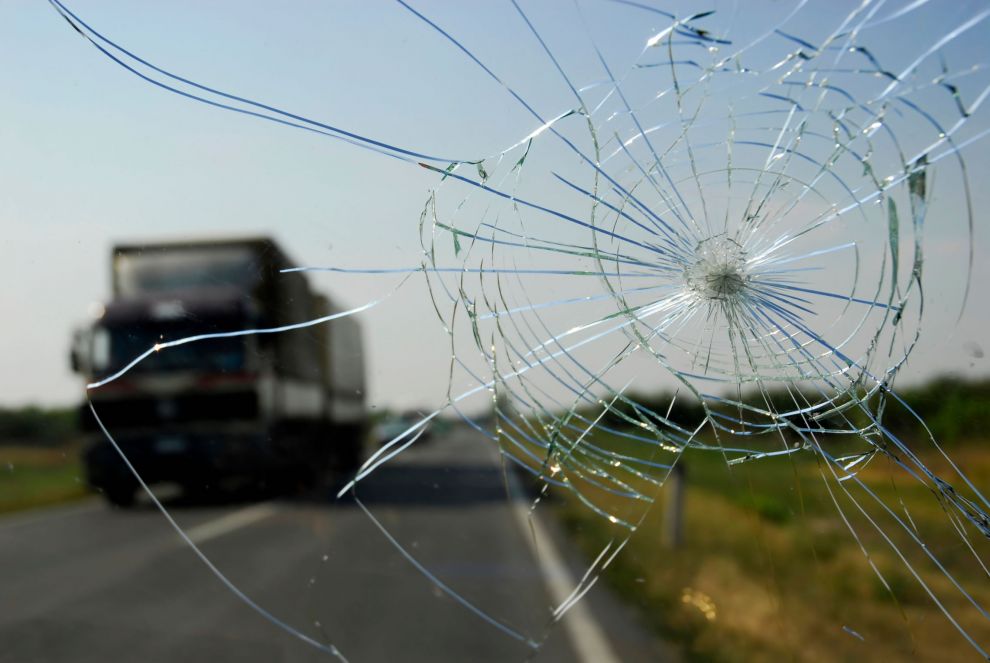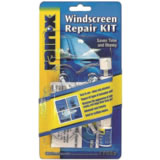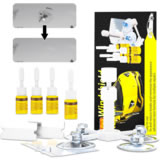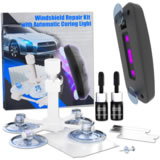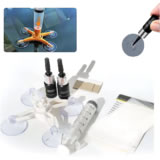Florida Cracked Windshield Laws
Damaged windshield on your car can lead to all kinds of hazardous situations. This is why most states have different laws regarding cracked windshields.
Florida traffic laws do allow driving with a damaged windshield under certain circumstances. Further clarification of the law is available below!
Is driving with a cracked windshield legal in Florida?
Florida laws do not specifically mention cracked or damaged windshields. But, there are other relevant regulations which can make driving with a damaged, chipped or broken windshield illegal.
In state of Florida you are not allowed to have any coverings, stickers or signs on the windshield. Exceptions include stickers mandatory by law, GPS devices, or toll payment devices. Any such devices or items must not obstruct driver’s clear view of the road. This is relevant for damaged windshields as well, as cracks or chips can potentially interfere with your view of the road.
All vehicle windshields must also have functioning windshield wipers. You can get cited in case your damaged windshield interferes with the operation of wipers.
Federal regulations state that any cracks or chips smaller than ¾-inch in diameter are permitted, as long as they are not located within 3″ of another crack. However, these cracks must not be located directly in front of the driver’s view (top of steering wheel to within top edge of windshield).
Lack of clear rules and regulations for cracked windshields means it’s often up to each police officer’s discretion whether you’ll be issued a ticket. Unless the crack is in corner and preferably on passenger side, it’s likely you will have to pay a fine, and replace or repair your windshield or other cracked windows.
Official source:
- See Florida Statutes: Title 13 – Motor Vehicles, Chapter 316: State Uniform Traffic Control for vehicle equipment laws, rules and regulations.
- Specifically, Sec. 316.2952 includes common restrictions and requirements of windows.
Can a broken windshield be repaired?
Depending on the extent of the damage, you may be able to repair your car windshield. If the crack on your windshield is less than 3″ in length, or if you have a small chip which is smaller than the size of a quarter, you should be able to repair your windshield.
Some shops may decline repairing your windshield if the crack is directly in front of the driver’s line of sight. This crack placement can obstruct your vision and cause safety concerns, and in most cases it is illegal to drive like this based on Florida laws.
If your windshield is too damaged you may have to replace it completely, which can cost a few hundred dollars. Full windshield replacement costs are always greater compared to repairing a small crack.
Car insurance companies in Florida must cover the costs of windshield repair by law (FL Statutes, Sec. 627.7288). If you have bare minimum auto insurance, you may have to pay for repairs or replacement yourself. If you have a comprehensive car insurance policy, your insurer must pay for any windshield or repair.
It’s always a best to contact your car insurance company to check if they will cover the cost of windshield repairs.
Cracked windshield is a safety concern
Impaired vision is not the only reason why you should repair or replace your broken or damaged car windshield. An undamaged windshield is stronger and in case of accidents can prevent further injuries.
In a rollover wreck the strength of the windshield is designed to keep the roof from crushing more than 5 inches when there is a force of approx 1-1/2 times the weight of the vehicle on the roof. In a front end collision at approximately 30mph, the windshield/sealant system is designed to keep at least 50% of the glass sealed to the car which could keep occupants from being ejected.
While you can drive with a cracked windshield and may avoid a ticket from police, it’s certainly not advisable. Having a cracked windshield can be dangerous and potentially against the law in Florida and other states.
